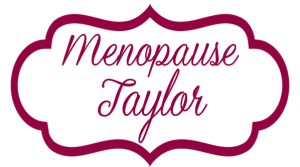Your Menstrual Life Determines Your Breast Cancer Risk
Breast cancer is one of the greatest fears women have. And they worry about all sorts of things causing breast cancer. Some are within your control; others aren’t. The list of risk factors is long … longer than most women realize. And one of the risk factors about which most women are completely unaware is their “menstrual life.”
You’re probably thinking, “Menstrual life? What in the world is that?”
Like I said; most women aren’t aware of many of their risk factors.
As it turns out there are five factors that work together to create something called your “menstrual life.”
You can probably guess by the term, “menstrual life” that it has something to do with menstruation (your periods). And you would be correct.
So your menstrual life is all about your cycles. And, as it turns out, your risk for breast cancer is directly related to how many menstrual cycles you’ve had in your lifetime.
So, what goes into determining your menstrual life?
Most of the factors are obvious. They’re all the things that affect how many periods you had during your lifetime.
So the first thing that determines how many periods you had is the age at which you had your first period. That’s what begins your menstrual life.
Another thing that determines how many periods you had is how much time you spent skipping periods. So what are the things that caused you to skip periods? Pregnancy and breastfeeding. And both of them caused you to skip periods for months at a time.
And what else determines how long you had periods? Your age at menopause.
So, all of the following combined determined your menstrual life:
Age at first period
Months of pregnancy … all pregnancies combined
Months of breastfeeding … all breastfeeding months combined for all babies
Age at menopause
If you develop this into an equation, it gives you your menstrual life:
(Age at menopause – Age at first period) X 13
– Months of breastfeeding
– Months of pregnancy
Menstrual Life
So, now that you’ve calculated your menstrual life, what does it mean?
Well, it boils down to this: the more periods you’ve had, the higher your menstrual life. The fewer periods you’ve had, the lower your menstrual life.
That means that the later you started your periods, the more pregnancies you had, the more breastfeeding you did, and the earlier you entered menopause, the lower your menstrual life.
And the earlier you started your periods, the fewer pregnancies you had, the less breastfeeding you did, and the later you entered menopause, the higher your menstrual life.
So what’s better, a low menstrual life or a high menstrual life?
Can you guess?
Here’s the answer: The lower your menstrual life the lower your risk of breast cancer.
If you had fewer than 350 menstrual cycles (a lower menstrual life), you have a low risk of breast cancer.
If you had between 350 and 450 menstrual cycles (a medium menstrual life), you have a high risk of breast cancer.
If you had more than 450 menstrual cycles (a very high menstrual life), you have a very high risk of breast cancer.
So women who have had lots of pregnancies and breastfed their children have lower risk. Likewise, women who started their periods late and entered menopause early have lower risk.
Now if you’re like most women, you’re a bit surprised by all this. And that’s because most women are under the misconception that high levels of estrogen cause breast cancer. So they assume that a greater number of pregnancies (a time when your estrogen levels are high for an extended period of time) would put one at higher risk of breast cancer rather than a lower risk.
But as it turns out, it’s not the level of estrogen that matters, but the cyclic fluctuations in estrogen that count.
So, now that you know about your menstrual life and its effect on your risk for breast cancer, does your menstrual life increase your fears or allay your fears? And regardless of which way you lean, isn’t it one of the factors you can’t change?


